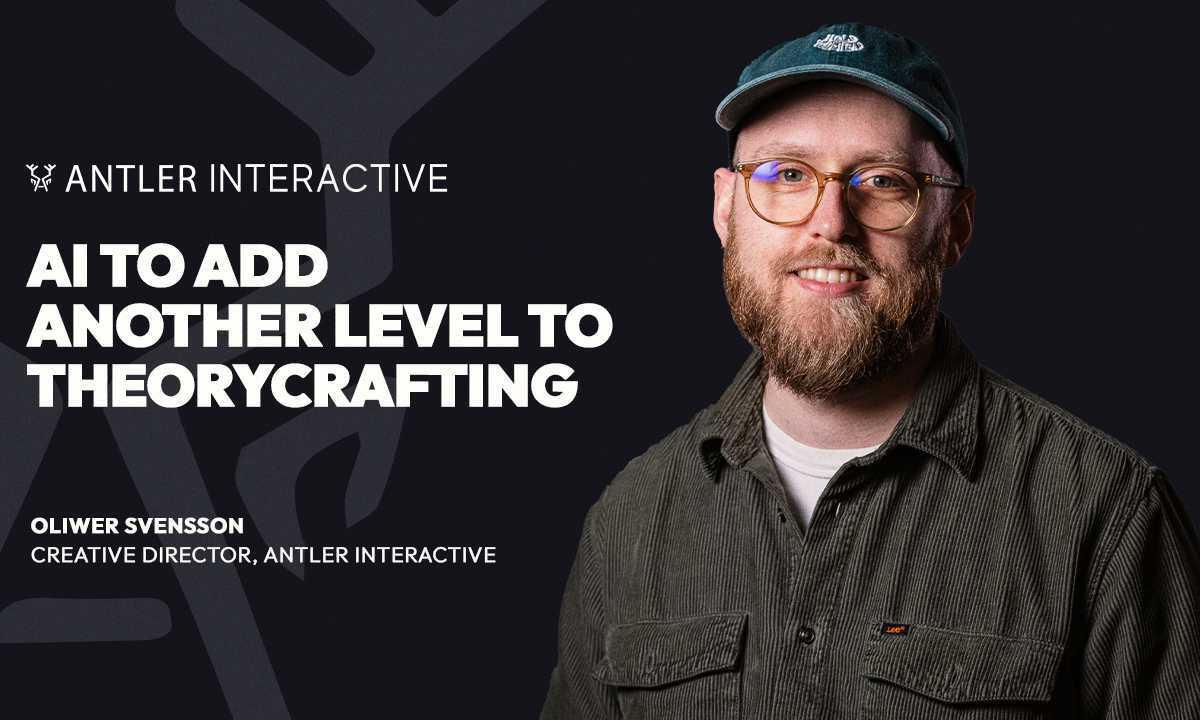Exclusive Interview with Oliwer Svensson
The gaming industry stands at the brink of a new era, one defined not just by the games themselves but by how they are created, experienced, and evolved. Oliwer Svensson, the Chief Creative Director at Antler Interactive, offers invaluable insights into this transformative journey, emphasizing the role of artificial intelligence (AI) in reshaping the gaming landscape.

The relationship between AI and gaming is one yet to be fully explored, with initial applications focused on crafting NPC behaviors or companions. Svensson labels this as table stakes for AI in gaming, stating, “The first time you touch AI in gaming is in building enemy behaviour, or AI companions” This foundational use underscores a pivotal shift towards more complex and nuanced applications of AI in game development.

Generative AI heralds a revolution in gaming, particularly in its ability to infuse games with the element of surprise. “It’s the aspect of being able to create a game that has elements of unpredictability,” Svensson observes. This unpredictability not only enhances replayability but also significantly enriches the player’s journey, making every playthrough uniquely engaging.
Svensson notes that he is a hardcore fan of theory-crafting, and believes the unpredictability and limitless possibilities AI brings to games will take theory-crafting strategy to new heights, giving players new challenges and opportunities. As a part of the gaming industry that relies heavily on player’s creativity. With AI taking decision trees to new heights, Svensson expects theory-crafting to a new level
Moreover, generative AI democratizes the process of game development. For smaller studios or individual creators, technologies like generative voice acting open new horizons of creativity and innovation, allowing for high-quality content production without the constraints of large budgets or teams. “I’m very interested in generative voice acting,” Svensson notes, highlighting the transformative potential of AI in leveling the playing field for content creators.

While both gamers and publishers stand to gain from the advancements in AI, Svensson believes the journey towards fully realizing these benefits starts with publishers.
As things currently stand with AI in gaming, the tools at the disposal of game developers provide far more utility than current experiences do for gamers. Svensson makes it clear that gamers benefit from enhanced experiences, but the current implementations of AI in gaming are not far enough down the line to truly change the gaming experience for good.
With that being said, he truly looks forward to creating those experiences that leave gamers dumbfounded.

In the race to harness AI, Svensson urges the industry to prioritize enhancing the gaming experience over merely accelerating content production. The focus should remain on quality, ensuring that AI serves to deepen engagement and immersion rather than just speeding up development cycles. “It’s not necessarily about how long you can play a game or how many features there are” he rightly points out, advocating for a balanced approach that values the depth and richness of the gaming experience.
The quality of the gaming experience is where AI truly shines, and Oliwer believes that in choice-based gaming – where player decisions dictate the next interactions – AI is going to elevate the quality of these experiences, making gaming a lot more intentional.

Svensson’s vision for the future of gaming is one where AI not only enhances the gameplay experience but also fosters a more collaborative ecosystem. He envisages a significant role for “community-focused gaming,” where the boundaries between developers and the gaming community blur, allowing for a more inclusive and dynamic development process. This vision underscores the potential of AI to transform gaming into a more participatory and co-creative endeavor, amplifying the voices and contributions of the community.
Taking inspiration from the famous Roblox, he believes AI will act as a catalyst for community developments and add to games going forward.

Among the most promising yet underexplored applications of AI in gaming is the concept of the autonomous game master. This AI would dynamically adapt the game environment in response to player actions, offering a level of unpredictability and personalized challenge that has the potential to redefine engagement. Svensson’s advocacy for this concept highlights the vast untapped potential of AI to create more adaptive, responsive, and immersive gaming experiences.

As the gaming industry ventures further into the realm of AI, it faces challenges such as ensuring AI-generated content remains immersive and aligned with the game’s universe. Yet, the opportunities far outweigh these challenges. By leveraging AI to enhance gameplay, democratize content creation, and foster community involvement, the industry can create more meaningful, engaging, and dynamic gaming experiences.
In Svensson’s eyes, AI game masters would be able to change game difficulty, dynamics, rewards and world structure, all based on the players’ decisions and gameplay, offering a truly personalized gaming experience

The integration of AI into game storytelling presents a novel frontier. Beyond generating dynamic content, AI can craft complex narratives that adapt to players’ decisions, creating a deeply personalized story experience. This capability could revolutionize narrative-driven games, offering stories that evolve uniquely for each player, reflecting their choices and actions in unprecedented ways. “Using it for narrative purposes,” as Svensson points out, introduces the potential for AI to create a narrative depth that is both immersive and endlessly variable.
With gameplay changing based on players’ decisions, game narratives and worlds are malleable on a player-by-player basis, offering unmatched replayability to games

As we stand on the threshold of a new dawn in gaming, the insights from Oliwer Svensson illuminate a path forward where AI not only revolutionizes the way games are developed and played but also redefines the relationship between creators and the community. Generative AI and autonomous game masters are bringing a future where games are not static experiences but evolving journeys shaped by the player’s decisions and actions. This evolution towards a more dynamic and personalized gaming experience underscores the transformative power of AI, promising a future where each playthrough is a unique adventure, rich in unpredictability and Svensson’s vision of a gaming future, where AI acts as a catalyst for community developments and elevates the quality of choice-based gaming, is a testament to the boundless possibilities that lie ahead. As we embrace this future, the gaming industry stands to create experiences that are more engaging, inclusive, and dynamic, marking a new chapter in the storied history of gaming. In this future, games become not merely a pastime but a canvas for innovation, creativity, and connection, powered by the limitless potential of AI.

 Buy $GGs
Buy $GGs









